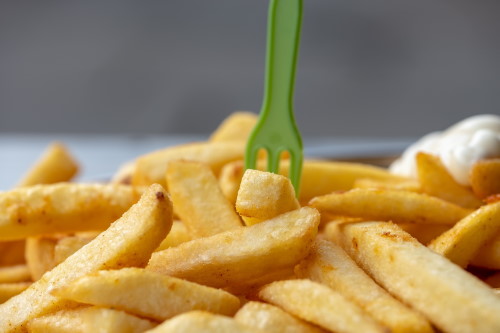No matter your age, eating a balanced diet is recommended for a healthy lifestyle. Although this has always been the recommendation, it is easier to get away with less-than-perfect food choices in your 20s, 30s, and even your 40s. Yet once you’ve achieved the 5-Oh milestone, it suddenly seems that what you eat makes an even bigger impact than before. For many people, this means a newfound focus on health and wellbeing, including cutting back on some once regularly eaten foods.
BREAKING: 72-Year Old Grandma's Anti-Aging Discovery Sweeps The Nation
Now, this doesn’t mean any food should be considered completely off limits, unless it’s due to an underlying health concern. Some foods, however, do fall into a worse food for your health category for those over 50.
Why 50? You see, after you hit 50, you may find yourself faced with new and unexpected health concerns. This is because the risk of certain medical conditions increases in older adults, such as heart disease, type 2 diabetes, and high blood pressure.
Additionally, older adults are less likely to be as physically active as younger adults and experience various body and brain changes associated with aging. Beyond this, the metabolism can naturally slow as we age (due to a decline in muscle mass). So, what was once a healthy diet that allowed you to maintain your weight can slowly become calorically too high, leading to the numbers on the scale creeping up as the years go by.
Therefore, a balanced, healthy diet for adults over 50 not only ensures proper nutrients, vitamins, and minerals are consumed to maximize the functioning and self-repair mechanisms in the body but also aid in warding off several age-related health complications.
The 5 Worst Foods to Eat After 50
1. Fried Foods
Although fried foods can be delicious, they are full of saturated fats, which can contribute to heart disease, especially as we age. Fried foods are also often higher in calories, increasing the risk for weight gain.
They’re also heavier—that is, they stick around in the stomach for longer than most other foods. That means these foods can lead to heartburn or indigestion more often or more intensely. Both of these uncomfortable conditions, unfortunately, tend to increase as we age.
2. Sugar-Packed Beverages
Packaged drinks like bottled coffee beverages, processed juices, and sodas are often high in sugar and provide little nutritional value. Cutting out these types of drinks is typically a no-brainer for anyone eager to improve their health.
This especially goes for older adults who tend to have smaller appetites, making it crucial to focus on nutrient-dense options when it comes to eating and drinking. Not only are sugar-filled beverages a source of empty calories, but they can also be a cause or worsen chronic diseases that become more prevalent with age.
3. Instant Meals
Instant and frozen meals are convenient, pre-portioned, easy-to-prepare, and often affordable, making them very appealing, especially as we age. Unfortunately, they are designed for convenience rather than health. Even packaged foods that claim to be healthier can contain too much sodium, hidden fats, added sugar, as well as fillers or stabilizers.
The sodium content in instant meals is particularly of concern after the age of 50, considering its impact on heart health and blood pressure. A diet high in sodium (over 2,300 milligrams/day) can cause water retention in many people in an attempt to flush out the extra sodium. This can lead to excess strain on the heart, kidneys, and vessels, leading to a rise in blood pressure.
4. Ultra-Processed Foods
Most of the food we eat is processed, but it’s the ultra-processed foods that can be detrimental to a healthy diet. This includes many ready-to-eat, processed food items like cakes, chips, condiments, deli meats, and packaged snacks, which commonly add food coloring, sodium, preservatives, and additives, which have been tied to all sorts of health risks.
Even more, many processed foods are low in (or void of) fiber and nutrients like potassium or magnesium, and they tend to be calorically dense, with a lot of fat and salt. Additionally, some of the preservatives, like nitrates, may be harmful in high amounts, perhaps leading to premature aging of cells in the body.
5. Excess Alcohol
Most alcohol is full of calories and sugars. While there is some evidence that drinking wine can be beneficial, most studies suggest limiting that to one glass per day.
TRENDIG: Big Pharma In Outrage Over This Breakthrough Natural Painkiller
Drinks with a larger alcohol content can also become harder for the body to process, especially as we age. This can, in turn, lead to greater hangover effects, as well as causing damage to your liver and kidneys.
Alcohol is also a diuretic, meaning it can exacerbate the need to use the bathroom several times during the night, which can disrupt sleep patterns.
Again, even as we age, there are no foods that are 100% off the menu (as long as they don’t contradict a health or allergy issue). But as we age, limiting the five foods above can help us enjoy greater energy and vitality even as the years tick by.









